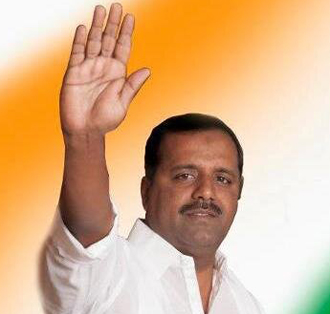Bengaluru, Apr 21: Hardline BJP leader and Bengaluru South MP Tejasvi Surya, who had deleted some of his old sexist tweets while contesting for Lok Sabha polls, yesterday deleted deleted his ugly remarks against Arab woman after it went viral and triggered sharp response from many quarters, including from the Arab world.
In 2015, before Surya became an MP, he had said in a tweet, "95% of Arab women have never had an orgasm in the last few hundred years! Every mother has produced kids as an act of sex and not love. @Tarek Fatah."
The old tweet was picked up some influential members in the Arab community. Many intellectuals and various members of the royal families too have over the past few days condemned the attacks on Muslims in India and called out instances on Islamophobia. They have been highlighting derogatory comments about the Arab community purportedly made by supporters of the ruling BJP. It was then that a few found that even present day recognised leaders like Tejasvi had made similar comments in the past.
As the outrage grew, Tejasvi deleted the old tweet. A lot of BJP supporters on Twitter then started pointing out that Tejasvi Surya had merely quoted Canadian journalist Tareh Fatah, known for his anti-Islam comments. But by then someone had archived the tweet and Tejasvi's response to it in 2015.
In a thread to the same tweet, responding to criticism, Surya had said that these were not his opinion but attributed to Tarek Fatah. He also said that he agrees with Fateh's position that 'Islamofascism was a threat to all civilsations'.
Surya could not be reached for a comment.
However, a source close to Surya, said, "This is a 2015 tweet where Tejasvi Surya was quoting Tarek Fatah from an interview. It is being wrongly attributed to him with malicious intent. The main issue being addressed in the interview was about the barbaric and inhuman practice of genital mutilation of women. If there's any person to comment on it, it has to be Tarek Fatah."
Tejasvi Surya had landed in a similar controversy soon after his nomination as a candidate just ahead of the 2019 Lok Sabha elections.
Surya could not be reached for a comment.
However, a source close to Surya, said, "This is a 2015 tweet where Tejasvi Surya was quoting Tarek Fatah from an interview. It is being wrongly attributed to him with malicious intent. The main issue being addressed in the interview was about the barbaric and inhuman practice of genital mutilation of women. If there's any person to comment on it, it has to be Tarek Fatah."
Tejasvi Surya had landed in a similar controversy soon after his nomination as a candidate just ahead of the 2019 Lok Sabha elections.
The Congress also stepped in to criticise Surya and the BJP, national spokesperson Sanjay Jha said in a tweet, “The BJP gives tickets to Pragya Singh Thakur and #TejasviSurya etc because it helps popularise their hardline bigoted political profile. But the chickens usually come home to roost. Today, India stands embarrassed, humiliated.”
 According to highly placed sources, Mr Khader, who has topped a series of surveys conducted by various news agencies to assess the performance of ministers in the state, will continue to handle health portfolio even after the much awaited Cabinet reshuffle.
According to highly placed sources, Mr Khader, who has topped a series of surveys conducted by various news agencies to assess the performance of ministers in the state, will continue to handle health portfolio even after the much awaited Cabinet reshuffle.





Comments
A million dollar question : why Siddaramayyah wants to sack UTK ????
Add new comment